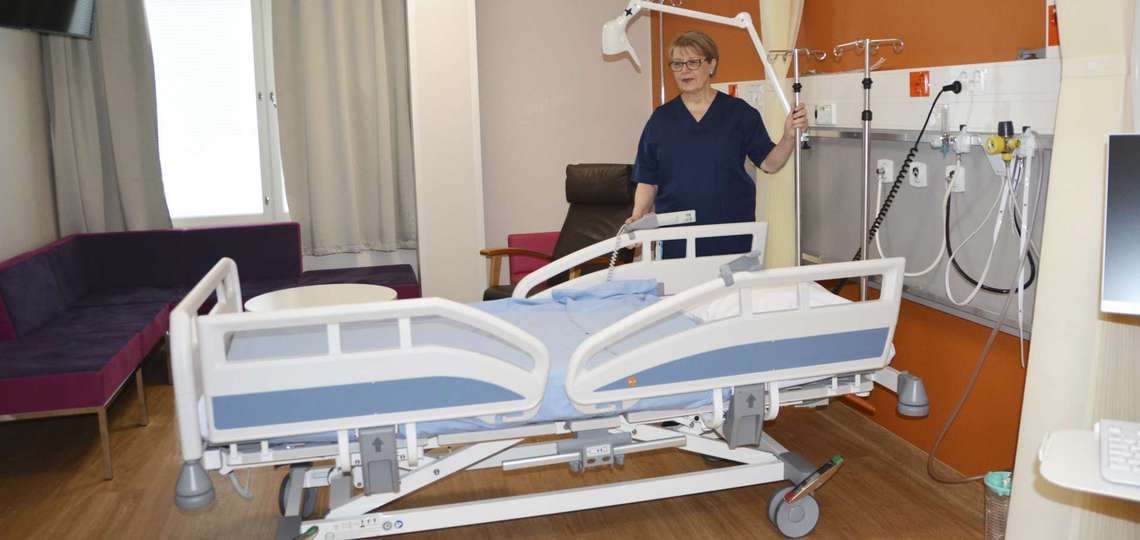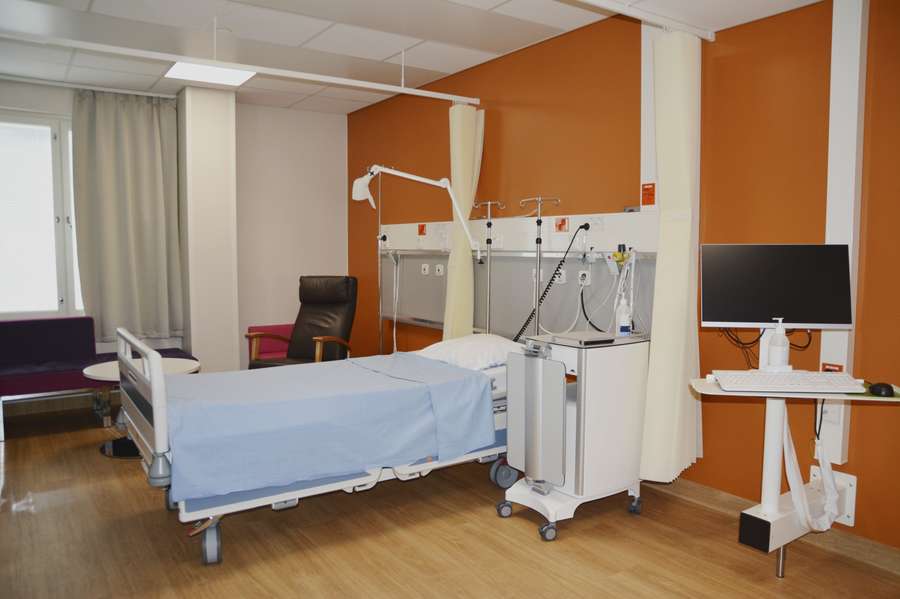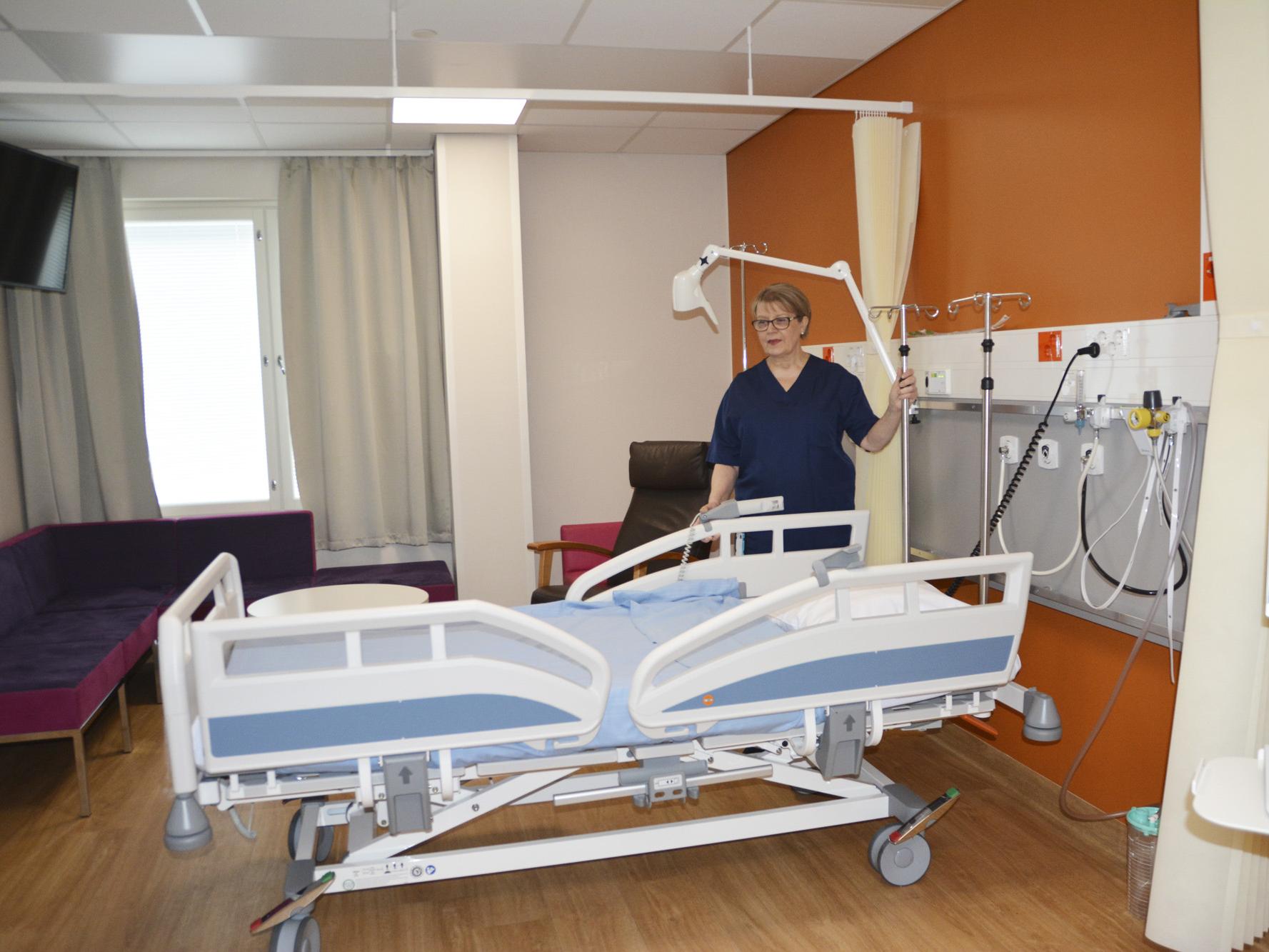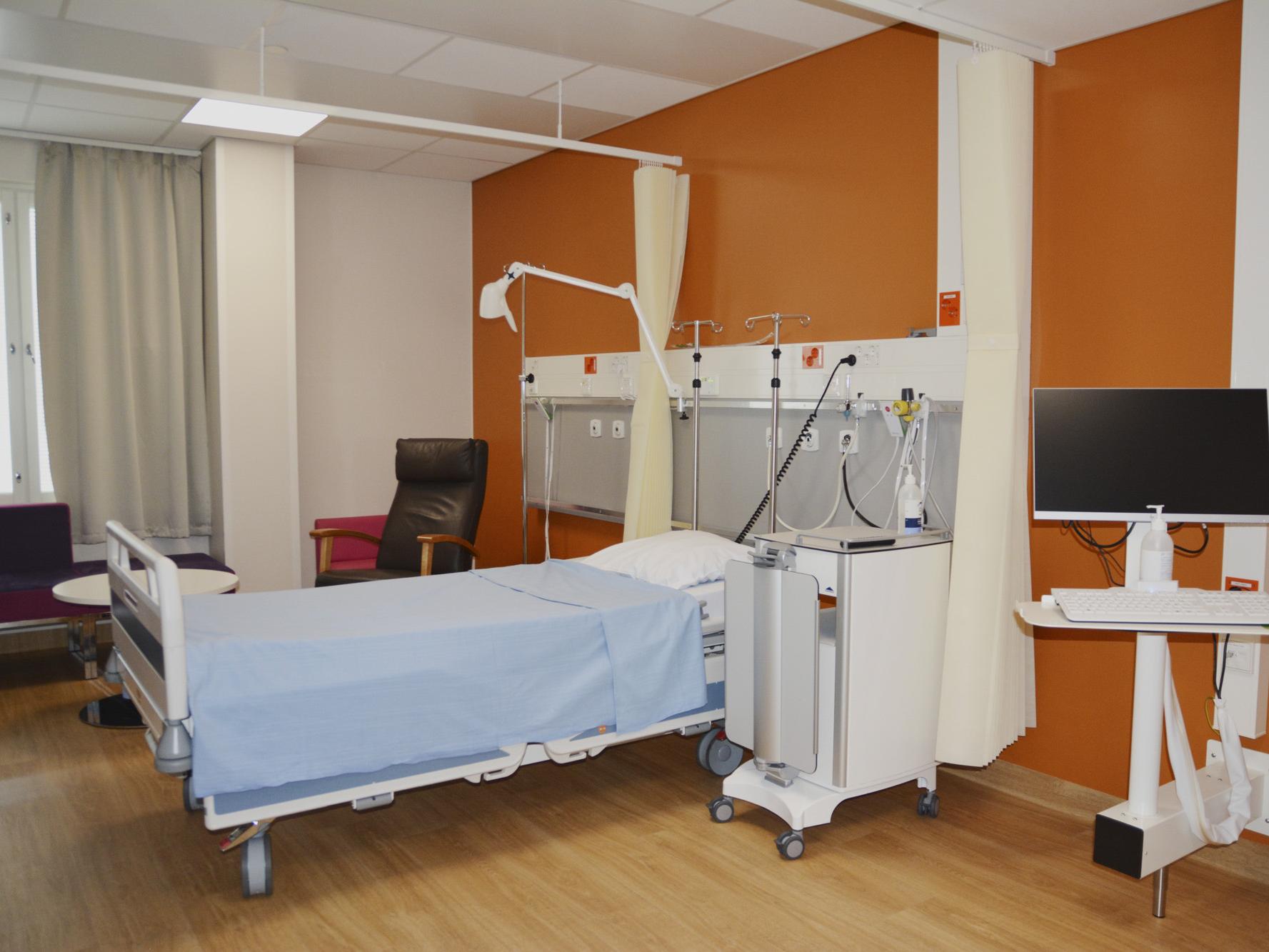
Evario hospital bed wins challenging tender in Finland
Stiegelmeyer supplies machine-washable beds and bedside cabinets to Kuopio University Hospital
Kuopio is a city with 120,000 inhabitants in the Savo region, in the middle of Finland. It is home to a renowned university hospital that was looking for reliable, versatile hospital beds. An important requirement was that the beds should be able to be reprocessed automatically. A welcome task for our Finnish Stiegelmeyer team, which was solved to everyone's satisfaction.
Kuopio University Hospital (KYS) is continuously refining its standard of care. The aim in the current planning period is to improve the protection and well-being of patients and staff in particular, as well as the quality and effectiveness of care. This also includes a renewal of the bed stock. Chief nurse Annmari Kainulainen is responsible for this project.
"High-quality hospital beds play an important role in the safety, well-being and rehabilitation of patients and in promoting good working ergonomics for staff. For example, such beds can reduce falls from bed and other patient falls, minimise the occurrence of pressure ulcers and promote staff job satisfaction," explains Ms Kainulainen.
The KYS intends to replace all hospital beds with new ones in the next few years. For economic reasons, however, not all beds can be replaced at once. Initially, the beds were to be renewed at an annual rate of 100 to 150. However, this goal will not be achieved, among other things because of the Covid pandemic.
"The master contract for the purchase of beds was tendered in 2018. Since then we have purchased 205 beds. The goal is to equip all 400 patient slots with new hospital beds after the completion of the Uusi-Sydän Heart Hospital in 2025. We will by no means purchase new beds for all the old ones, as the bed capacity will be significantly reduced with the new clinic," says Ms Kainulainen.

Careful selection process as a guarantee for success
In addition to KYS, the procurement process included the Municipal Association of the Nursing District of the entire Pohjois-Savo region, the city of Kuopio and Siun Sote in North Karelia. Bed suppliers were first asked in 2017 to present their products to a cross-sector selection panel that included specialists in hospital care, inpatient care, equipment management, patient transport and service. The panel then defined the selection criteria for the tender for the master contract.
"We wanted a 90-centimetre-wide bed with versatile settings that patients can adjust themselves. We also placed great emphasis on safety. We required that the bed could be lowered to a height of 35 centimetres and easily extended for patients taller than two metres. The split safety side should also serve as an exit aid. The bed also had to be compact, manoeuvrable and machine-washable, and its headboard had to be removable for resuscitation and nursing procedures," lists Ms Kainulainen.
The machine washability of the beds was an important selection requirement. The KYS is acquiring a washing system for the new hospital, in which the beds are reprocessed every time a patient is discharged. They must be able to withstand the stresses of washing chemicals, water temperatures of up to 80 degrees and hot air drying.
One bed model for all wards of the hospital
After the tender, Stiegelmeyer was selected as the supplier of the beds - with the Evario model. This manoeuvrable, compact bed is suitable for all wards of the hospital. Its Protega split safety side promotes patient mobilisation. The Evario beds in Kuopio are operated with user-friendly LCD handsets as well as control boxes for nursing staff at the foot end. The height adjustment ranges from a low 32 cm to 91 cm, depending on the type of castor. Stiegelmeyer also supplied Vitano bedside cabinets, which, like the beds, are machine-washable.
"Our patients like the new bed very much. Since it has a wider mattress base than conventional beds and stable safety sides, they don't have to worry about falling out of bed. Getting out of bed is also easy. With the new beds, the nurses' work ergonomics have improved. The work has become easier and more relaxed because adjustments no longer have to be made mechanically. It is also easier to manoeuvre the beds," says Ms Kainulainen.
She adds: "Of course, putting the new beds into operation took a little practice." Stiegelmeyer conducted extensive training for selected KYS staff, who then instructed other nursing staff in the use of the beds. In addition, Stiegelmeyer created an instructional video. Our colleagues in Finland are also responsible for the regular maintenance of the beds and instruct the KYS technicians to carry out minor service work on the beds themselves.
"We are extremely satisfied with the delivery and the cooperation with Stiegelmeyer. We were able to come to a flexible agreement on all matters with a competent contact person, and a practicable solution was found for all challenges," sums up head nurse Annmari Kainulainen.


